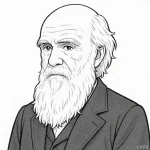“It is just like man’s vanity and impertinence to call an animal dumb because it is dumb to his dull perceptions.”

- November 30, 1835 – April 21, 1910
- American
- Author, humorist, and lecturer
table of contents
Quote
“It is just like man’s vanity and impertinence to call an animal dumb because it is dumb to his dull perceptions.”
Explanation
Mark Twain’s quote humorously critiques human arrogance and the tendency to project limited understanding onto the animal world. By saying “it is just like man’s vanity and impertinence,” Twain suggests that it is a reflection of human hubris to call an animal “dumb” simply because it doesn’t behave in a way that humans can easily comprehend or relate to. The phrase “dumb to his dull perceptions” implies that humans, in their narrow view of intelligence, fail to recognize that animals may possess forms of intelligence or awareness that are simply beyond human understanding. The humor here lies in the irony that it is the human who is at fault for labeling animals as less intelligent, not because they lack intelligence, but because human perception is too limited to recognize it.
Twain’s statement reflects his broader skepticism about the human tendency to place themselves at the top of the intellectual hierarchy, viewing other species as inferior simply because they don’t fit into the human framework of intelligence. This quote also touches on the self-centered nature of human thinking—our tendency to judge everything from a human perspective, failing to appreciate the diversity of intelligence that exists across species. Twain’s words serve as a reminder that intelligence is not a one-size-fits-all concept, and what may seem like a lack of intelligence in animals may simply be a reflection of our own inability to perceive their unique ways of knowing and interacting with the world.
In modern contexts, this quote is relevant when discussing the complexity of animal behavior and cognitive science, especially as research continues to show the sophistication of animal communication, problem-solving, and emotional intelligence. Whether in animal rights, ethology, or conservation, Twain’s words encourage us to challenge the notion that human intelligence is the only valid measure of cognitive value and to recognize the rich and diverse ways in which different species experience and engage with the world. His critique remains a poignant reminder to approach other beings—whether human or animal—with humility and respect for their unique forms of intelligence.
Would you like to share your impressions or related stories about this quote in the comments section?




